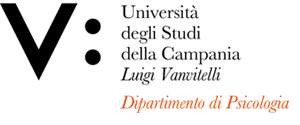Francesco PANICO
Insegnamento di NEUROPSICOLOGIA DELLE EMOZIONI
Corso di laurea magistrale in PSICOLOGIA DEI PROCESSI COGNITIVI
SSD: M-PSI/02
CFU: 8,00
ORE PER UNITÀ DIDATTICA: 56,00
Periodo di Erogazione: Primo Semestre
Italiano
| Lingua di insegnamento | ITALIANO |
| Contenuti | Parte I |
| Testi di riferimento | Libri di Testo Obbligatori: |
| Obiettivi formativi | Il corso si propone di fornire una panoramica aggiornata della ricerca sulle emozioni. In particolare si focalizzerà sulle funzioni delle emozioni e della regolazione emotiva, e sulle basi neurofunzionali delle emozioni nei disturbi neuropsicologici e psichiatrici. |
| Prerequisiti | Conoscenza di base di psicologia generale, fisiologica e neuropsicologia |
| Metodologie didattiche | Lezioni frontali con modalità interattiva: gli allievi parteciperanno alle discussioni in aula e avranno la possibilità di presentare e discutere gli articoli proposti. |
| Metodi di valutazione | Esame orale. E' prevista una prova intercorso opzionale. |
| Altre informazioni | - |
| Programma del corso | Già descritto |
English
| Teaching language | Italian |
| Contents | Part I |
| Textbook and course materials | Mandatory Books: |
| Course objectives | The course aims at providing an up-to-date overview of the research on emotions. In particular, it will focus on the functions of emotions and emotion regulation, and on the neurofunctional correlates of emotions in neuropsychological and psychiatric disorders. |
| Prerequisites | Basic knowledge of general psychology, psychobiology and neuropsychology |
| Teaching methods | Lectures with interactive mode: students will participate in class discussions and present oral reports of the proposed papers. |
| Evaluation methods | Oral examination. Optional interim test. |
| Other information | - |
| Course Syllabus | Already described |








